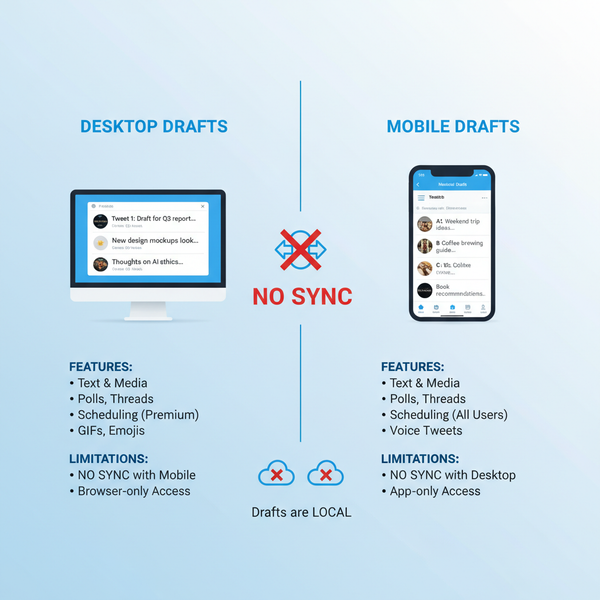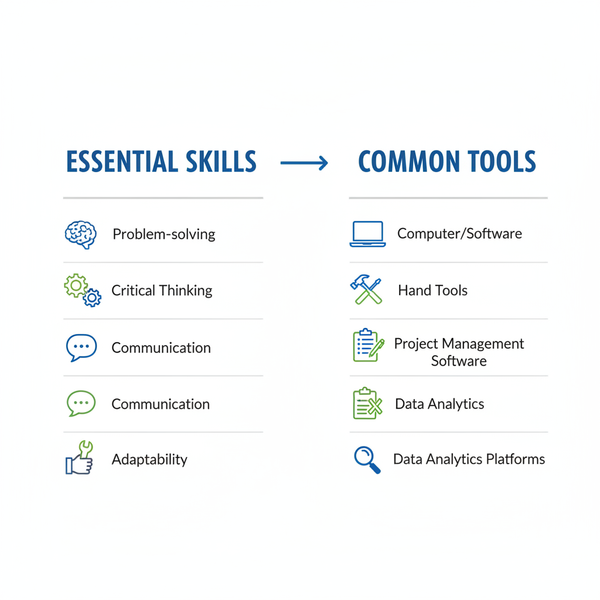Create a Social Media Site from Scratch Step-by-Step
Learn how to build a social media site from scratch, covering niche selection, feature planning, tech stack, design, security, and feed algorithms.
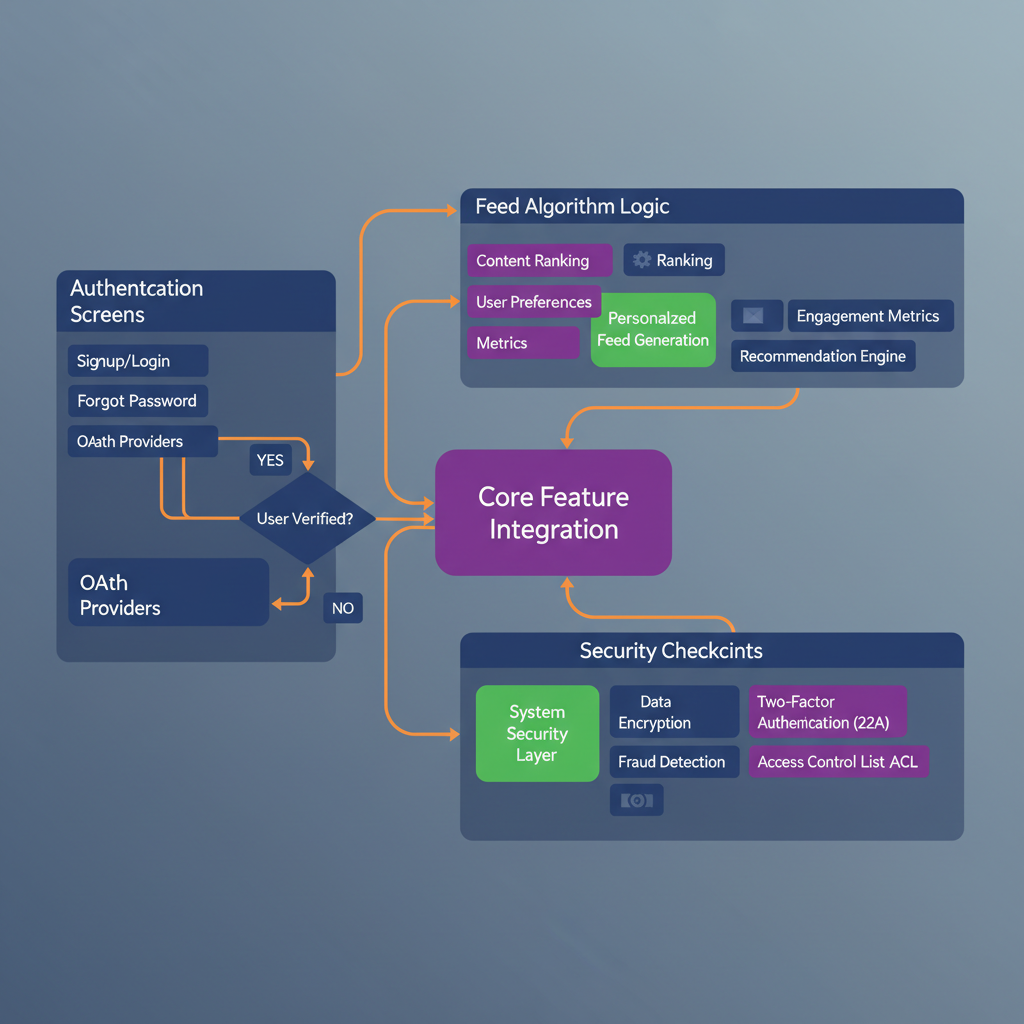
How to Create a Social Media Site from Scratch
Building a social media site from scratch can be a rewarding project for entrepreneurs, developers, or community builders aiming to connect like-minded people. This step-by-step guide explains how to create a social media site — from defining your niche and selecting features, to implementing security, scaling architecture, and planning a growth strategy.

---
Define Your Target Audience and Niche
Before writing a single line of code, identify exactly who your platform will serve:
- Demographics: Age group, gender distribution, location, income levels.
- Interests: Hobbies, professions, causes, trends.
- Goals: Social interaction, career networking, knowledge sharing.
A clear niche not only guides feature decisions but also streamlines marketing. For instance, a community for freelance graphic designers will require tools and features distinct from a network for pet lovers.
---
Research Competitor Platforms and Your Unique Value Proposition
Study established platforms to understand their strengths and weaknesses. Analyze:
- Core features
- User demographics
- Engagement patterns
- Monetization models
Identify gaps and opportunities in the market. Your Unique Value Proposition (UVP) might be stronger privacy controls, ad-free browsing, or specialized communication tools tailored to your niche.
---
Choose Core Features
An effective social network balances functionality with simplicity. Minimum viable features often include:
- User Profiles: Basic info, profile pictures, bios.
- Feeds: Centralized content stream.
- Messaging: One-to-one or group chat.
- Groups & Communities: Topic-based subspaces.
- Privacy Settings: Control who sees content.
| Feature | Description | Priority |
|---|---|---|
| User Profiles | Include photos, bio, interests | High |
| Content Feed | Display posts from friends/groups | High |
| Messaging | Secure text, media chats | High |
| Groups | Topic-specific spaces | Medium |
| Privacy Settings | User control over visibility | High |
---
Select Your Tech Stack
Choosing the right technology is crucial for stability, performance, and scalability.
Frontend Options:
- React.js
- Vue.js
- Angular
Backend Options:
- Node.js with Express
- Django (Python)
- Ruby on Rails
Database Choices:
- PostgreSQL
- MongoDB
- MySQL
Hosting:
- AWS, Azure, Google Cloud
- Vercel or Netlify (frontend)
- Heroku for rapid deployment
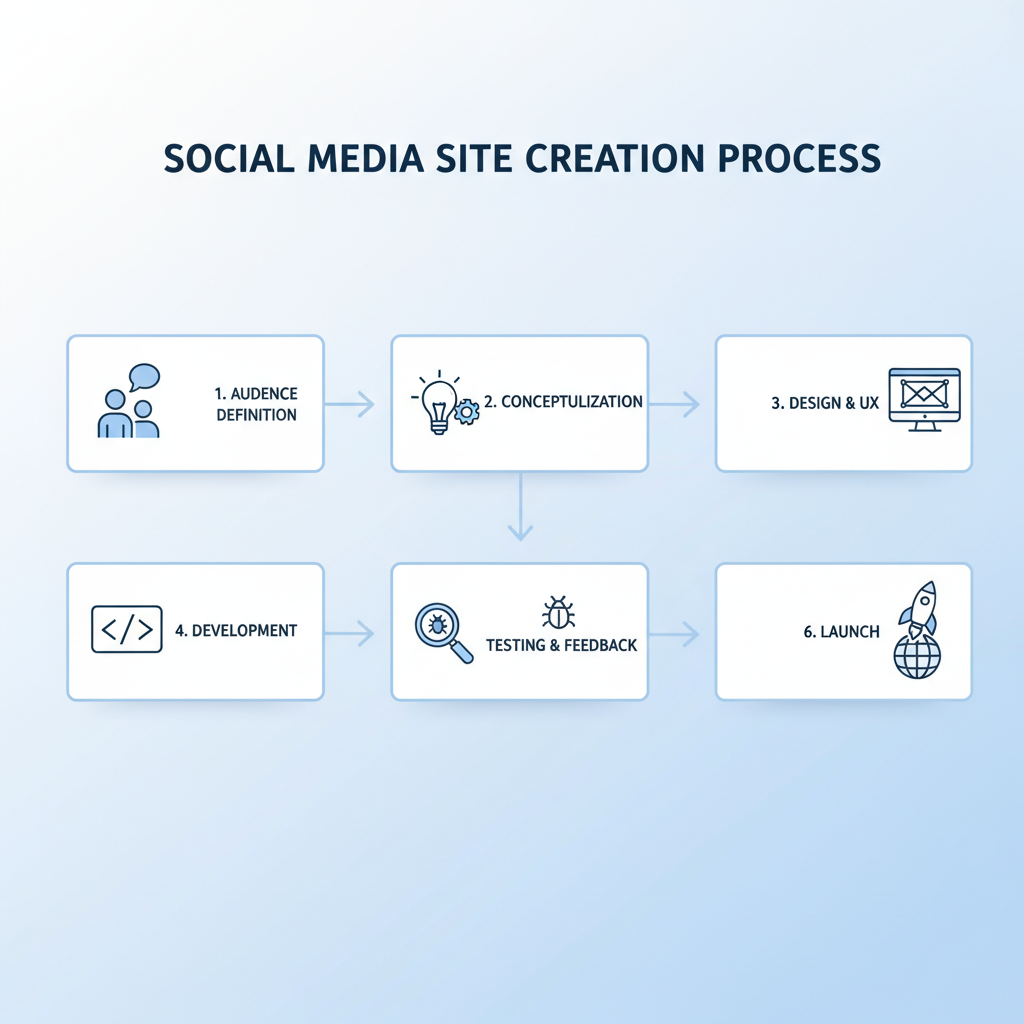
---
Plan UI/UX Design
A seamless and intuitive experience drives engagement:
- Navigation: Easy access to profiles, feeds, chat.
- Consistency: Keep fonts, colors, layouts uniform.
- Accessibility: Support for assistive technologies.
- Microinteractions: Likes, comments, emoji reactions.
Wireframing and prototyping before coding help refine the user journey. Use Figma, Adobe XD, or Sketch to visualize workflows.
---
Implement User Authentication and Account Security
Security is non-negotiable for social media. Key steps include:
- Email and password registration
- Two-factor authentication (2FA)
- OAuth integrations (Google, Facebook login)
- Secure password hashing (bcrypt, Argon2)
Example snippet for password hashing in Node.js:
const bcrypt = require('bcrypt');
const saltRounds = 10;
async function hashPassword(password) {
const hash = await bcrypt.hash(password, saltRounds);
return hash;
}---
Develop Algorithms for Content Feed and Recommendations
The feed is your platform's heartbeat. Start with:
- Chronological Feed: Latest posts first
- Relevancy Feed: Based on interests and past interactions
- Recommendation Engine: Suggest new connections or topics
Begin with keyword matching; scale to collaborative filtering or deep learning models as your dataset grows.
---
Integrate Media Upload and Storage Solutions
Users expect seamless sharing of images, videos, and documents:
- Cloud storage like Amazon S3 or Google Cloud Storage
- Compression for efficient delivery
- Content moderation AI for NSFW detection
---
Test the Beta Version
Recruit a small group from your target audience:
- Observe usage patterns
- Collect feedback via surveys
- Log errors and crashes
- Adjust features accordingly
Closed betas can reduce reputational risk while refining the platform.
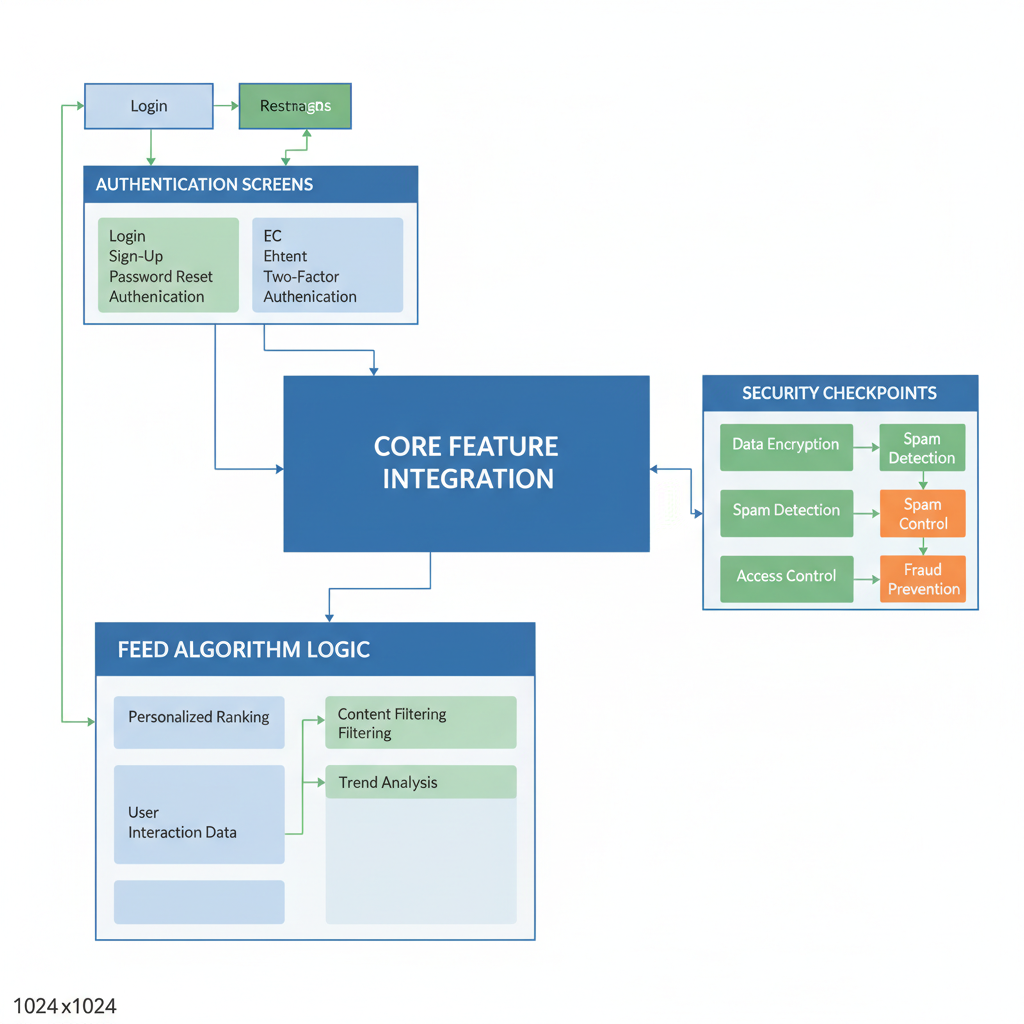
---
Set Up Community Guidelines and Moderation Tools
Clear rules maintain healthy interaction:
- Prohibit harassment, hate speech
- Enable reporting and blocking
- Moderate flagged content in queues
- Automated spam filters
---
Integrate Analytics and Tracking
Analytics are essential for both growth and troubleshooting:
- Measure daily active users (DAU)
- Monitor retention rates
- Visualize engagement trends
- Tools: Google Analytics, Mixpanel, or custom dashboards
---
Plan Your Launch Strategy
Pre-launch promotion builds excitement:
- Teasers on forums and social media
- Partnerships with niche influencers
- Press releases to relevant blogs
- Email newsletters
Consider phased rollout for performance monitoring.
---
Implement Monetization Options
Common revenue models for social networks include:
- Advertising: Banner ads, native ads
- Subscriptions: Premium plans offering exclusive features
- Microtransactions: Gifts, reactions, badges
Choose models that align with your audience’s tolerance.
---
Ensure Scalability and Future-Proof Architecture
Build with growth in mind:
- Horizontal scaling with load balancers
- Microservices for modularity
- CDN integration for speed
- Database sharding for growing datasets
---
Continuously Improve
Post-launch success depends on responsiveness:
- Collect feedback regularly
- Expand high-demand features
- Resolve bugs quickly
- Roll out improvements on a predictable schedule
Adapt your platform to evolving trends and technologies.
---
Summary
Creating a social media site from scratch involves more than development — you need audience insights, robust features, security, and a marketing plan. Following these steps will help you design, build, and grow a strong online community. Ready to start? Plan your niche and tech stack today to bring your vision to life.

